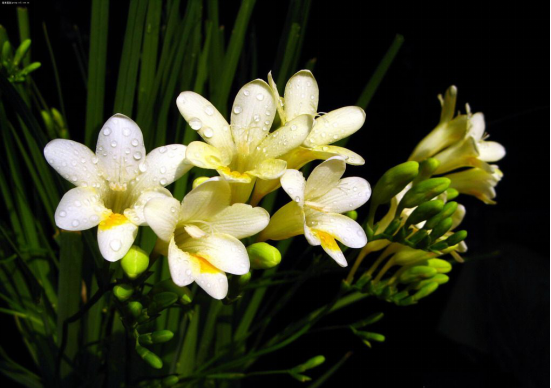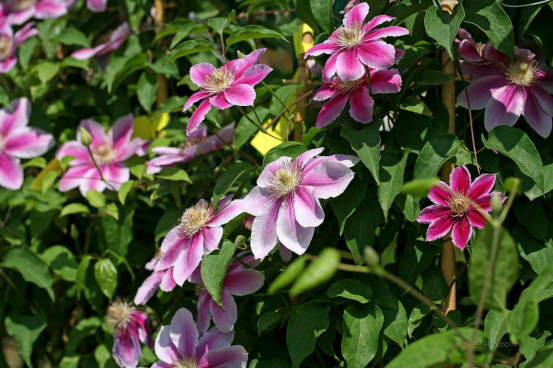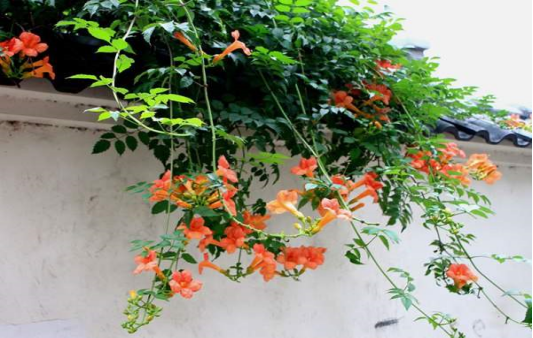Xiangxue orchid culture
Soil
Xiangxue orchid is suitable for growing in loose sandy soil with strong water retention and good drainage. Before planting Xiangxue orchid, the soil should be irrigated and disinfected with the solution of pentachloronitrobenzene, methyl bromide and Yinglandan in proportion, and used after disinfection for a week.
Seeding treatment
It is not only the soil that needs to be disinfected before planting, but also the balls that need disinfection. Soak the seed ball in 800 times thiophanate methyl or carbendazim solution for 1 hour or 2 hours, then pick it up and place it in a cool place to dry.
After drying, put the bulb in a relatively warm environment to promote the growth of the rhizome and break its dormancy period. When the root grows, it can be transplanted.

Fertilizer and water
Keep the soil moist after transplanting until budding. After budding, the amount of water should be adjusted according to the situation to keep the soil dry and reduce the air humidity as much as possible.
During the period from planting to flowering, the basic fertilizer in the soil can basically meet the growth of the plant, so it is not necessary to apply fertilizer deliberately. But if the plant is thin, you have to fertilize it once after growing a few leaves. Do not apply fertilizer when budding, lest the excessive growth of leaves will affect flowering. When flowering, potassium dihydrogen phosphate fertilizer was applied to promote flowering.
Temperature and light
Usually after one and a half months of planting, the inflorescence will gradually differentiate. When Xiangxue grew four leaves, the temperature was maintained at about 13-14 ℃ to promote the growth of leaves. During the period of flower bud differentiation, the temperature should be controlled at 10: 25 ℃. After budding, the temperature should be raised appropriately, but the temperature should not exceed 25 ℃. After flowering, the temperature can be reduced to 15 ℃ in order to prolong the flowering period.
When the first leaf of Xiangxue orchid grows, it should be shaded properly, reduce the soil temperature and promote root development. When the flower bud differentiation, to ensure 10 hours of sunshine, is conducive to flower bud differentiation. After flower bud differentiation, the light time should be prolonged appropriately to promote inflorescence development and early flowering. Avoid direct sunlight during this period.
Pull the net
The branches of vanilla are soft and the inflorescences grow curved. When there are more flowers, there will be the phenomenon of flower branches drooping and lodging, which is very beautiful. So when the plant grows three or four leaves, you can choose to pull the net. At about 20 cm above the ground, set the first layer of net, and gradually increase the number of nets with the growth of the plant. The specification of the net depends on the situation, not too big or too small.
The above is the introduction of the planting method of Xiangxue orchid brought to you by Xiaobian. Well, after seeing it, have you learned how to breed Xiangxue orchid?
Xiangxue orchid culture methods and matters needing attention: daily culture knowledge
Fragrant orchids are like lilies, Ye Ruolanhui, elegant in color, exquisite and beautiful, rich aroma and long flowering period. they are favorite flowers for florists. Xiangxue orchid is planted in autumn, blossoms in winter, bulbs are planted in August-September, and can blossom in November-December. The growing period requires a temperature of 15-20 ℃ and plenty of sunshine to keep the soil moist and strengthen ventilation.
Xiangxue orchid is accustomed to cool, humid and sunny environment, and its cold resistance is poor. The suitable temperature for growth is 15: 20 ℃, and the lowest overwintering temperature is 3: 5 ℃. The temperature of 13.5 ~ 15 ℃ could promote the rooting and sprouting of corms. It is suitable to grow in loose and fertile sandy soil. Culture method of Xiangxue orchid (daily culture)
1. Soil: Xiangxue orchid likes sandy loam with rich organic matter, strong water retention and good drainage, pH6~7.2, acid soil is more suitable for planting.
2. Watering: the soil must be kept moist after planting to before budding. After budding, the amount of water should be reduced step by step, and the soil surface should be kept dry as far as possible, so as to reduce the air humidity and prevent diseases.
3. Lighting: although Xiangxuelan likes light, it should also avoid strong light. When the light is too strong and the temperature is high, a shading net with a light transmittance of 70% can be used to shade.
4. Temperature: temperature management is very important for the production of cut flowers of vanilla, and the cold tolerance is poor. The suitable temperature for growth is 15: 20 ℃, and the lowest temperature for overwintering is 3: 5 ℃. The temperature should be ventilated above 25 ℃ and covered with heat preservation or heating below 10 ℃.
5. Fertilization: the organic fertilizer and compound fertilizer applied before planting can basically meet the growth needs, but if the plant growth is weak, ammonium nitrate, urea and potassium sulfate should be applied again at 2-4 leaves. 0.2% potassium dihydrogen phosphate is used as foliar fertilizer during the first flowering, but it is best to avoid topdressing before and after budding. When organic liquid fertilizer is applied every two weeks, a proper amount of compound fertilizer can also be applied.
6. Insect diseases: sweet cedar is prone to mosaic disease, ball rot and so on. When planting, the soil and bulbs should be thoroughly disinfected, and the basin soil should be changed thoroughly every year. At the same time, attention should be paid to the control of aphids. 1500 times of omethoate or 90% trichlorfon can be sprayed at the initial stage of aphid occurrence.
Matters needing attention in Xiangxue Orchid Culture
The main results are as follows: 1. Xiangxue orchid is often thin and weak in the process of indoor cultivation. When drawing a flower stem, it is necessary to support the flower stem with a stick to prevent the pedicel from bending and affect the ornamental value.
Prevention and treatment: in order to prevent its overgrowth, the way to promote "dwarfing" is to treat the seed ball with paclobutrazol before planting, which can achieve excellent results. Soak the stored seed ball with 80ppm (80 × 10-6) "paclobutrazol" solution for 15 to 20 hours before potted sherry in autumn, wash it with clean water, and then put it on the basin for normal watering and other management. After treatment, the fragrant orchid emerges neatly, the leaf color is dark green, the leaf width increases, the length decreases, the fragrance is more intense after flowering, the fragrance is softer, the inflorescence grows inflectively, and it is easy to make the flower branches droop and lodge when the flowers are too long. In the 3-4 leaf stage of the plant, the scaffold net can be set up, the first layer net should be set up about the 25cm off the ground, and the 2-layer net should be set up with the growth of the plant. Generally, the grid of the open net is 10cm × 10cm or 10cm × 15cm.
2. Disease: Xiangxue orchid is prone to mosaic disease, ball rot and so on.
Prevention and control methods: when planting, the soil and seed balls should be thoroughly disinfected, and the basin soil should be changed thoroughly every year. At the same time, attention should be paid to the control of aphids. 1500 times of omethoate or 90% trichlorfon can be sprayed at the initial stage of aphid occurrence.
Cultivation items of Xiangxue Orchid
At the beginning of August, the bulbs of Xiangxue orchid were graded according to size and planted in pots. Generally, bulbs with a diameter of more than 1 cm can blossom the following year after planting; those with a diameter of less than 1 cm can not blossom in the following year, so they should be planted and raised bulbs. Seven portions of fine sand, 3-4 horseshoe slices or 4-5 granule compound fertilizer were used in the culture soil, and then the culture soil was placed at a depth of 3 to 5. The selected corm was planted in a pot and covered with 1-1.5 cm of soil. After planting, it should be watered with a fine spray pot, and it can germinate and grow in about 10 days. Generally, 5-7 bulbs of the same size can be planted in pots to ensure that they will bloom neatly in the coming year.
Tips on Culture of Xiangxue Orchid
1. Propagation mode: bulbs are usually sown in September, usually with tissue culture seedlings, or seeds. The bulbs can be bred into high-quality bulbs after 1-2 years.
2. Seed selection: bulbs with diameters above 1cm should be selected for cultivation. In order to reduce virus infection, virus-free tissue culture balls or new balls cultivated by seeds and seed balls must be selected.
3. Planting in the pot: soak the stored bulbs in 80ppm's paclobutrazol solution for 15 to 20 hours before potted, then rinse with clean water. Planting is usually covered with soil 2~3cm, do not be too thick, after planting the soil surface is often covered with a thin layer of peat soil or pine needles, straw, sawdust, etc., to keep the soil moist.
How to cultivate Xiangxue orchid? the breeding method of Xiangxue orchid
Vanilla is a perennial bulbous herbaceous flower of Iridaceae. It is a kind of flower that has strict requirements on the environment. In the process of its growth, there are always all kinds of unexpected problems. So florists who grow fragrant orchids often feel very annoyed. So how does fragrant snow orchid grow? Today, the popular agricultural material network will give you a detailed introduction to the breeding method of fragrant snow orchid.
Culture method of Xiangxue orchid
Xiangxue orchid prefers cool, moist and sunny environment, and its cold resistance is poor. The suitable temperature for growth is 15: 20 ℃, and the lowest temperature for overwintering is 3: 5 ℃. The temperature of 13.5 ~ 15 ℃ could promote the rooting and sprouting of corms. It is suitable to grow in loose and fertile sandy soil.
For family planting, it is usually planted in artificial culture soil made up of 2 beat 3 peat soil and 1 big 3 fine sand. The low temperature of 8-13 ℃ is required for flower bud differentiation, and the suitable temperature for flower bud development is 13-18 ℃. If the temperature is below 18 ℃, the florescence will be delayed and the flower stem will be shortened. Higher temperature can promote early flowering, but plant growth is weak. The short-day condition is beneficial to the flower bud differentiation, while after the flower bud differentiation, the long-day sunshine can blossom earlier.
During the growing period, sufficient fertilizer and water are required, organic liquid fertilizer is applied every two weeks, and appropriate amount of compound chemical fertilizer can also be applied. The basin soil is required to be dry and wet, not stagnant water or too dry. The bulbs are usually sown in September, the flower buds begin to differentiate in early November, and the differentiation is completed in late November. After May of the following year, the leaves withered gradually and the corms entered the period of natural dormancy.
Xiangxue orchid in the process of indoor cultivation, there are often thin and weak plants, when drawing pedicels, it is necessary to support the flower stem to prevent the pedicel from bending and affect the ornamental value. In order to prevent its overgrowth, the way to promote "dwarfing" is to treat the seed ball with paclobutrazol before planting, which can achieve excellent results.
Methods the stored seed balls were soaked in 80ppm's paclobutrazol solution for 15 to 20 hours before potted sherry in autumn, then washed with clean water, then put on the pot and watered normally. After treatment, Xiangxue orchid emerges neatly, the leaf color is dark green, the leaf width increases, the length decreases, and the fragrance is more intense after flowering.
What is introduced in this article above is about how to breed Xiangxue orchid and the details of its breeding method. Thank you for your reference and support. If you want to know more about the technical information of flower cultivation, you can pay more attention to the popular agricultural material network to learn more and more detailed agricultural technical information.
- Prev

Key points of clematis culture:
1. Soil: clematis like alkaline soil with fertile, loose and smooth drainage, and can not accumulate water or be too dry. 2. Watering: clematis is not allowed to be too wet. Daily watering should be controlled, not too much, especially in the summer season with more Rain Water.
- Next

Propagation of Campsis
Campsis flower is very suitable for potted planting to beautify the home environment, mainly with cuttage propagation, the depth of half of the cuttings, but also available layering and subplant propagation. The climate in the south is pleasant, so you can cut off the branches and buds of the year directly and insert them in the soil, and they will survive soon. Suitable seasons are generally in spring and autumn
Related
- Fuxing push coffee new agricultural production and marketing class: lack of small-scale processing plants
- Jujube rice field leisure farm deep ploughing Yilan for five years to create a space for organic food and play
- Nongyu Farm-A trial of organic papaya for brave women with advanced technology
- Four points for attention in the prevention and control of diseases and insect pests of edible fungi
- How to add nutrient solution to Edible Fungi
- Is there any good way to control edible fungus mites?
- Open Inoculation Technology of Edible Fungi
- Is there any clever way to use fertilizer for edible fungus in winter?
- What agents are used to kill the pathogens of edible fungi in the mushroom shed?
- Rapid drying of Edible Fungi

